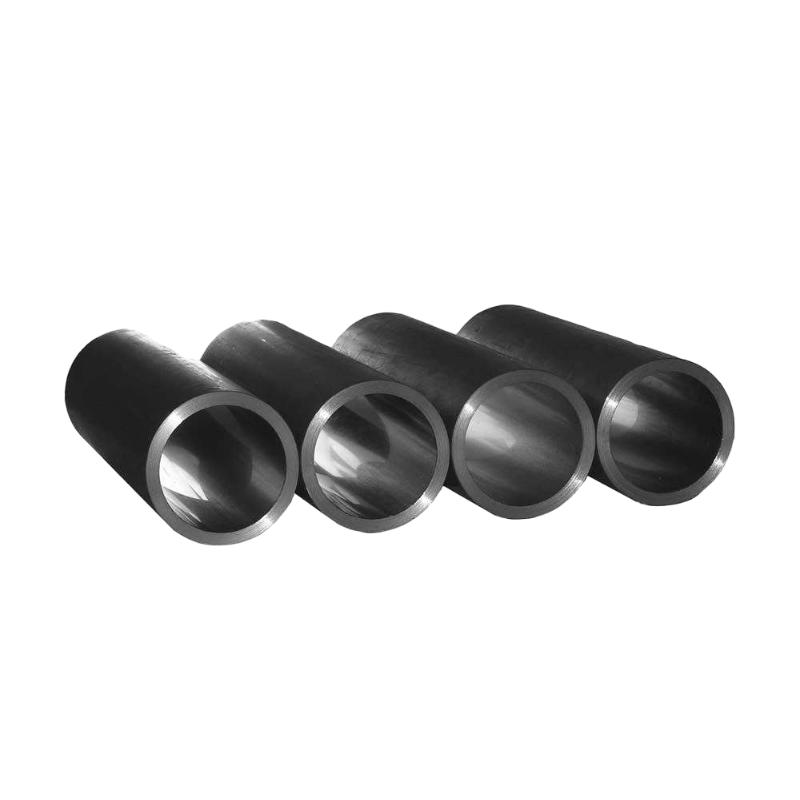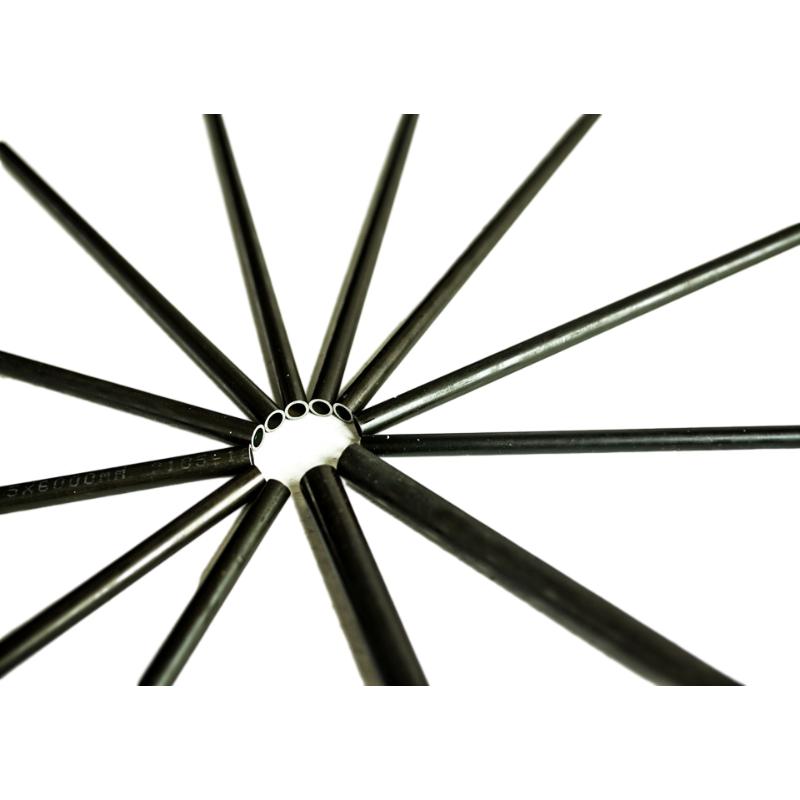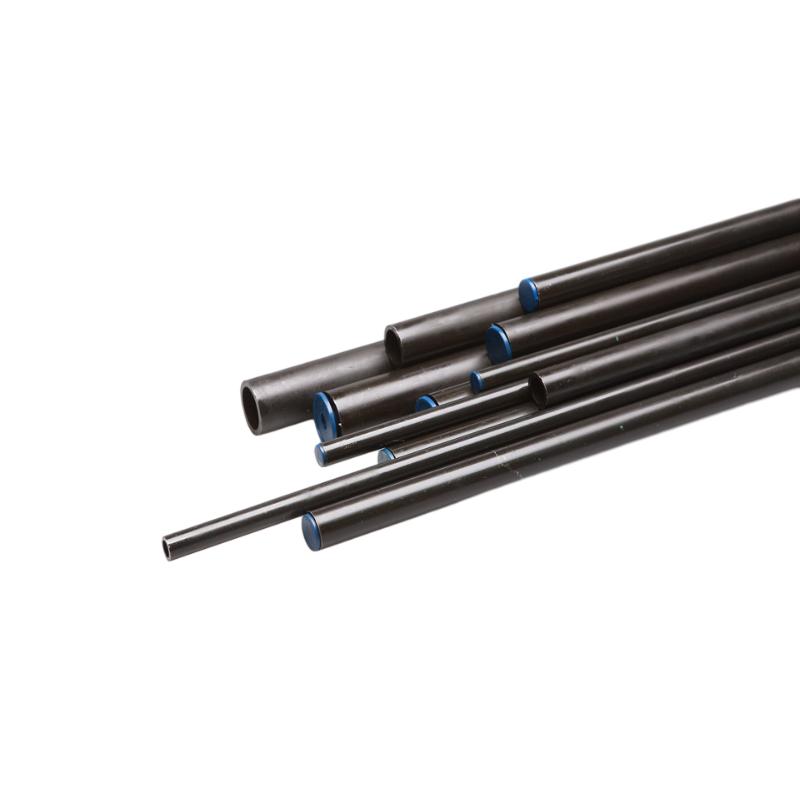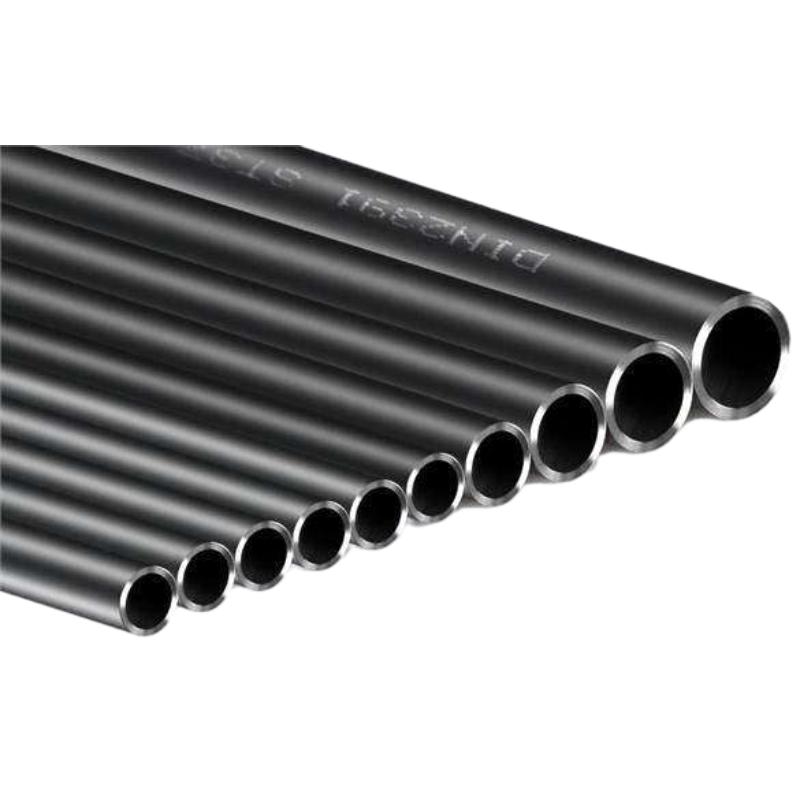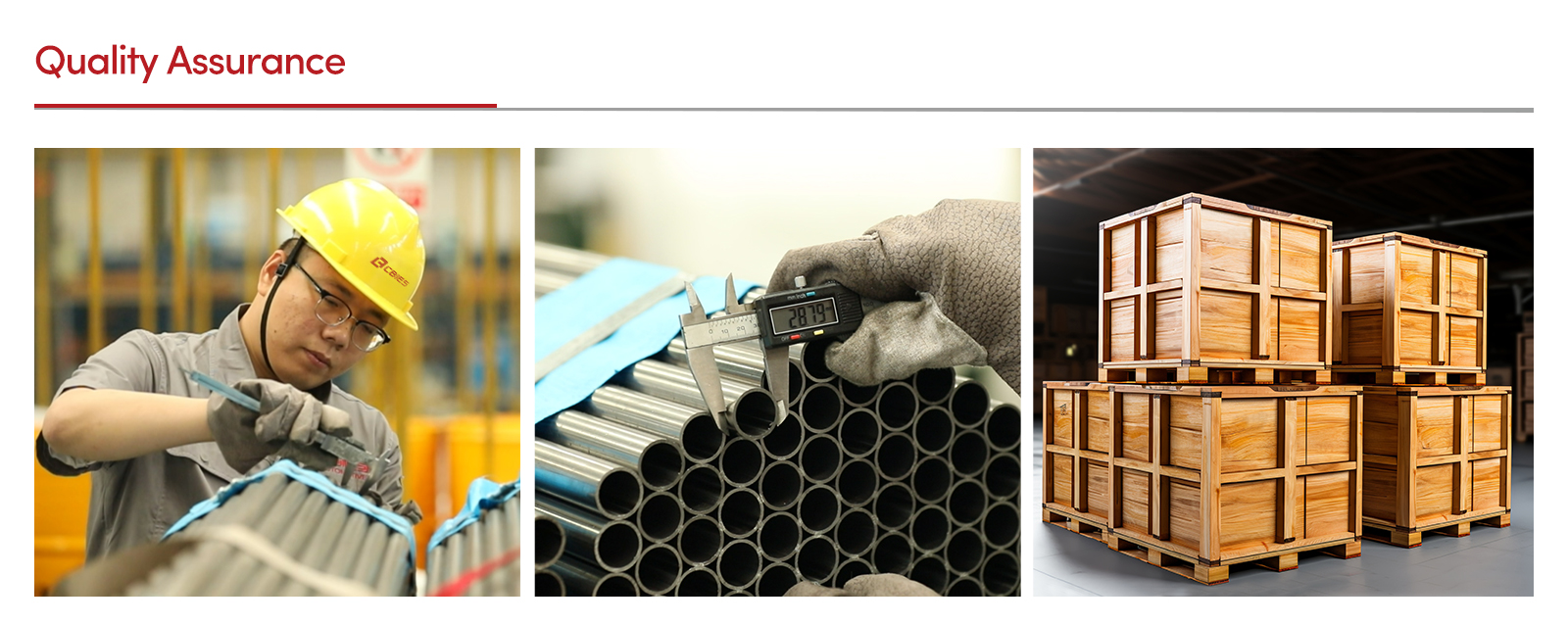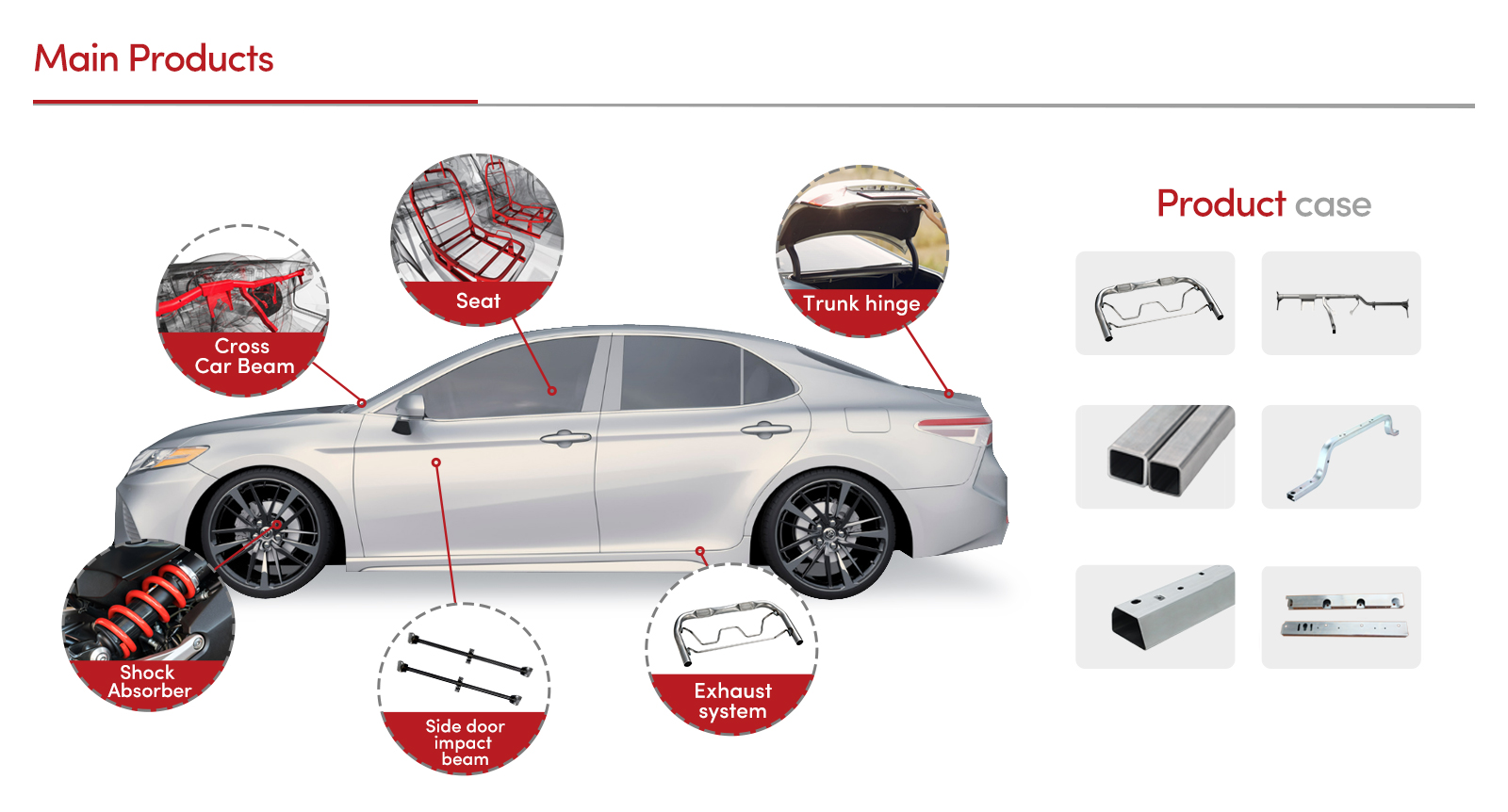Benefits of Using Structural Steel Tubing
1. Exceptional Strength-to-Weight Ratio
One of the most significant advantages of structural steel tubing is its impressive strength-to-weight ratio. Unlike traditional solid steel bars or plates, CBIES precision steel tubes provide significant structural support without the added bulk. This characteristic is particularly beneficial in mechanical equipment, where every ounce counts. Engineers can design lighter and more efficient machines that consume less energy and provide optimal performance while maintaining structural integrity.
2. Versatile Applications
Structural steel tube is incredibly versatile, making it suitable for a wide range of mechanical applications. From fframiau sedd modurol to mechanical components, the adaptability of steel tubing allows it to meet various design specifications. Its ability to be easily welded, formed, and fabricated means that it can be utilized in custom solutions that meet the unique demands of different projects.
3. Enhanced Resistance to Environmental Factors
Steel tubing is known for its durability and resistance to environmental challenges. Unlike materials that may corrode or degrade over time, structural steel tubing undergoes treatments that increase its resistance to rust, corrosion, and impact. This resilience ensures that mechanical equipment remains operational for longer periods, reducing maintenance costs and downtime.
4. Economical Solution
Investing in structural steel tubing can also translate into significant cost savings for manufacturers and builders. The long lifespan, reduced maintenance needs, and lightweight nature of structural steel tubes can decrease operational costs significantly. Moreover, the efficiency of using pre-fabricated steel components can lead to faster assembly times, ultimately saving time and labor costs during the construction process.
5. Eco-Friendly Choice
In today’s world, the demand for sustainable construction materials is on the rise. Structural steel tube stands out as an eco-friendly option due to its recyclability. Steel is one of the most recycled materials globally, and using structural steel tubing contributes to a more sustainable lifecycle for mechanical equipment. By choosing this material, companies can reduce their carbon footprint and promote environmental responsibility.
6. Improved Aesthetic Appeal
Structural steel tubing is not just about functionality; it also brings an element of aesthetic appeal to mechanical designs. The sleek, clean lines of steel tubing can be incorporated into modern designs, enhancing the overall look of mechanical equipment. This feature is particularly valuable in industries where the visual impression of machinery can influence customer perceptions and brand image.
Comparing Structural Steel Tubes with Other Materials: Why Steel is the Best Choice
First and foremost, structural steel tubes possess exceptional strength-to-weight ratios. Unlike alternatives such as aluminum or plastic tubes, which may offer some resilience, steel provides unmatched robustness. This means that structures made from steel can bear heavier loads and stress, ensuring safety and longevity in various applications.
Moreover, precision steel tubes are engineered for accuracy, with tighter tolerances than many other materials. This precision is essential for projects that require exact measurements and quality finishes. Using precision steel tubes also reduces the need for additional machining and adjustments, which can lead to time and cost savings in the construction process.
Another advantage of structural steel tubes is their outstanding resistance to environmental challenges. Unlike wood or plastic, which can deteriorate over time due to moisture, pests, or UV exposure, structural steel tubes remain impervious to such threats, making them a more sustainable and low-maintenance choice.
Additionally, steel is infinitely recyclable, aligning with today's eco-conscious construction practices. Utilizing structural steel tubes contributes to a greener built environment, whereby waste is minimized, and resources are conserved.
So comparing structural steel tubes with other materials, steel emerges as the best choice due to its strength, precision, durability, and eco-friendliness. For any construction project, opting for structural steel tubes, particularly precision steel tubes, is not just a smart decision; it's a commitment to quality and longevity in structural integrity. Choose steel – choose excellence.
Different Types of Structural Steel Tubes
Structural steel tubes are an integral part in mechanical equipment, providing strength, durability, and versatility to a wide range of applications. Let’s delve into the various types available and their unique benefits.
HSS Steel Tubes
Hollow Structural Steel (HSS) tubes are favored for their high strength-to-weight ratio. They come in various shapes, including square, rectangular, and round, offering unmatched versatility. The design of HSS steel tubes means they can easily fit into different structural systems, making them suitable for everything from buildings to bridges.
Hollow Structural Tubes
Hollow structural tubes are cylindrical in shape, often used in applications requiring a lightweight yet strong solution. Their hollow design allows for easy integration into frameworks and supports, optimizing space and materials. This type of tubular steel is commonly used in scaffolding and various building frameworks.
Metric Structural Tubing
For projects requiring precise measurements, metric structural tubing is available. This type of tubing adheres to metric specifications, making it necessary for international projects. Designers and architects can efficiently incorporate these tubes into their plans, ensuring compatibility with global standards.
Rectangular and Round Structural Steel Tubing
Rectangular structural steel tubing excels in applications demanding greater rigidity, making it an ideal choice for structural frames. On the other hand, round structural steel tubing is favored for its aesthetic appeal and ability to handle torsional loads effectively, commonly used in railings, fences, and other architectural elements.
Shaped Structural Tubing
Shaped structural tubing refers to any non-standard cross-section, allowing for customized designs that meet specific project requirements. Whether it’s elliptical or another unique shape, shaped structural tubing provides creative freedom in architectural design.
 Affricanaidd
Affricanaidd  Albaneg
Albaneg  Amhareg
Amhareg  Arabeg
Arabeg  Armenaidd
Armenaidd  Azerbaijani
Azerbaijani  Basgeg
Basgeg  Belarwseg
Belarwseg  Bengali
Bengali  Bosnieg
Bosnieg  Bwlgareg
Bwlgareg  Catalaneg
Catalaneg  Cebuano
Cebuano  Corseg
Corseg  Croateg
Croateg  Tsiec
Tsiec  Daneg
Daneg  Iseldireg
Iseldireg  Saesneg
Saesneg  Esperanto
Esperanto  Estoneg
Estoneg  Ffinneg
Ffinneg  Ffrangeg
Ffrangeg  Ffriseg
Ffriseg  Galiseg
Galiseg  Sioraidd
Sioraidd  Almaeneg
Almaeneg  Groeg
Groeg  Gwjarati
Gwjarati  Creol Haitaidd
Creol Haitaidd  hausa
hausa  hawaiian
hawaiian  Hebraeg
Hebraeg  Naddo
Naddo  Miao
Miao  Hwngareg
Hwngareg  Islandeg
Islandeg  igbo
igbo  Indoneseg
Indoneseg  gwyddelig
gwyddelig  Eidaleg
Eidaleg  Japaneaidd
Japaneaidd  Jafaneg
Jafaneg  Kannada
Kannada  kazakh
kazakh  Khmer
Khmer  Rwanda
Rwanda  Corëeg
Corëeg  Cwrdaidd
Cwrdaidd  Kyrgyz
Kyrgyz  TB
TB  Lladin
Lladin  Latfieg
Latfieg  Lithwaneg
Lithwaneg  Lwcsembwrgaidd
Lwcsembwrgaidd  Macedoneg
Macedoneg  Malgashi
Malgashi  Maleieg
Maleieg  Malayalam
Malayalam  Malteg
Malteg  Maori
Maori  Marathi
Marathi  Mongoleg
Mongoleg  Myanmar
Myanmar  Nepali
Nepali  Norwyaidd
Norwyaidd  Norwyaidd
Norwyaidd  Ocsitaneg
Ocsitaneg  Pashto
Pashto  Perseg
Perseg  Pwyleg
Pwyleg  Portiwgaleg
Portiwgaleg  Pwnjabi
Pwnjabi  Rwmania
Rwmania  Samoaidd
Samoaidd  Gaeleg yr Alban
Gaeleg yr Alban  Serbeg
Serbeg  Saesneg
Saesneg  Shona
Shona  Sindhi
Sindhi  Sinhala
Sinhala  Slofaceg
Slofaceg  Slofeneg
Slofeneg  Somalïaidd
Somalïaidd  Sbaeneg
Sbaeneg  Sundanaidd
Sundanaidd  Swahili
Swahili  Swedeg
Swedeg  Tagalog
Tagalog  Tajiceg
Tajiceg  Tamil
Tamil  Tatar
Tatar  Telugu
Telugu  Thai
Thai  Twrceg
Twrceg  Tyrcmeniaid
Tyrcmeniaid  Wcrain
Wcrain  Wrdw
Wrdw  Uighur
Uighur  Wsbeceg
Wsbeceg  Fietnameg
Fietnameg  Cymraeg
Cymraeg  Help
Help  Iddeweg
Iddeweg  Iorwba
Iorwba  Zwlw
Zwlw 





